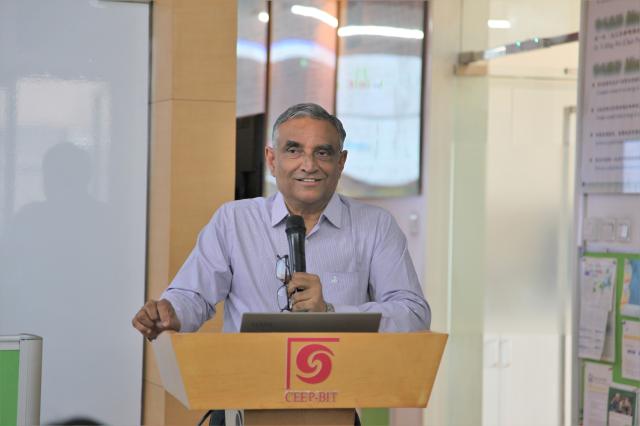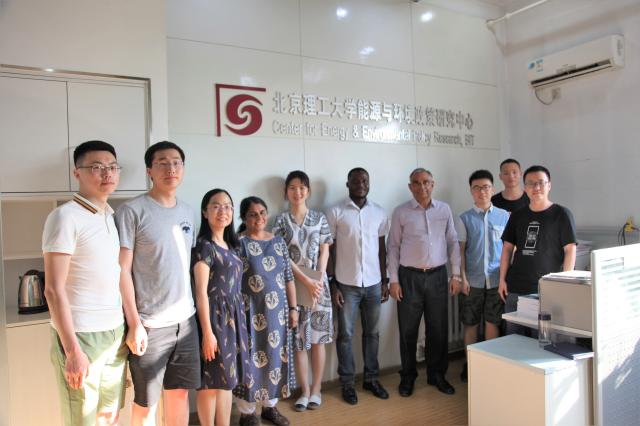
At 15:00 pm on June 24, 2019, Professor Priyadarshi R. Shukla was invited to visit and gave an academic report entitled " Energy System Transformations for Global Warming of 1.5℃ ". This report was presided over by Professor Qiaomei Liang. The teachers and students of the center participated in the report.
Priyadarshi R. Shukla is a Distinguished Professor at Ahmedabad University. He is currently a co-chair of the Working Group III (Mitigation) of the Intergovernmental Panel on Climate Change (IPCC). He has been a professor at Indian Institute of Management, Ahmedabad for over three decades. Prof. Shukla has been a member of several prestigious national and international committees in the areas of energy, environment and development. He has led several global energies, environment and development modeling teams. He has co-authored/co-edited fifteen books and numerous publications in the reputed international journals. Prof. Shukla has been a member of the editorial board of several international journals in the areas of energy, environment, climate change and development policies and modeling. He is a consultant to numerous national and international organizations. Prof. Shukla holds Ph.D. from Stanford University.

In today's report, Prof. Priyadarshi R. Shukla was focused on ‘Special Report on the impacts of the global warming of 1.5℃ (SR15)’. The framing of the report included a comparison between global warming of 1.5oC and 2oC above pre-industrial levels. The report’s findings for the comparative warming levels show that global emissions of current nationally stated mitigation ambitions would lead to 52–58 GtCO2eq yr−1 of global GHG emissions in 2030. Under warming to 1.5°C and 2°C, CO2 emissions should fall by about 45% and 20% respectively by 2030. Limiting warming to 1.5°C would require changes on an unprecedented scale requiring deep emissions cuts in all sectors, use of a range of technologies (e.g. Renewables) and increased investment in low carbon options. A silver line to the system transformation story is its close links to United Nations Sustainable Development Goals (SDGs). There are a mix of measures to adapt to climate change and mitigate emissions which can have benefits for SDGs. The presentation also opened up the discussion on the mitigation challenges and opportunities in the context of preparing IPCC WGIII AR6. After the report, Prof. Priyadarshi R. Shukla took the picture with teachers and students at CEEP together.
